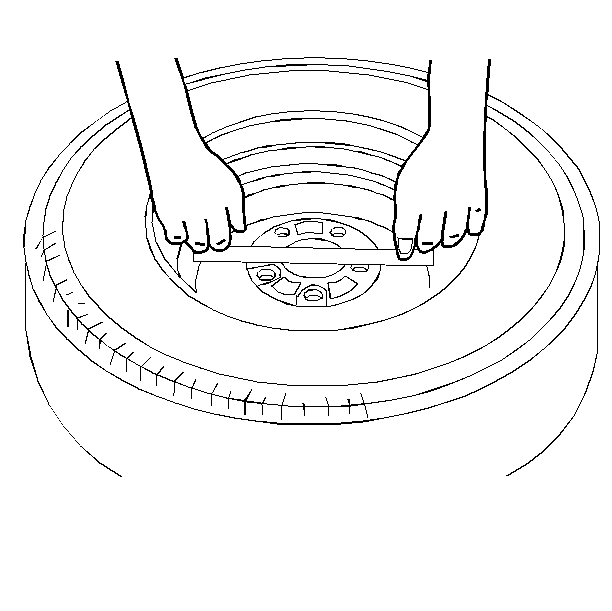Replace any wheels that are bent or dented, or have excessive lateral or radial runout. Wheels with runout greater than specified may cause objectionable vibrations.
- Use a straight edge 203-229 mm (8-9 in) long. Place the straight edge on the wheel inboard mounting surface. Try to rock the straight edge up and down within the mounting surface.
- Repeat this procedure on at least 3-4 different positions on the inboard mounting surface.
- Replace the wheel if the wheel is bent.
- Replace the wheel if the wheel/nut boss area is cracked.

| • | If you can rock the straight edge, the mounting surface is bent and you must replace the wheel. |
| • | Inspect the mounting wheel/nut holes for damage caused from over-torquing the wheel/nuts. Inspect for collapsed wheel/nut bosses. Inspect for cracked wheel bosses. |
Caution: The use of non-GM original equipment wheels may cause:
• Damage to the wheel bearing, the wheel fasteners and the wheel • Tire damage caused by the modified clearance to the adjacent vehicle components • Adverse vehicle steering stability caused by the modified scrub radius • Damage to the vehicle caused by the modified ground clearance • Speedometer and odometer inaccuracy
Note:
• Replacement wheels must be equivalent to the original equipment wheels in the following ways: - The load capacity - The wheel diameter - The rim width - The wheel offset - The mounting configuration • A wheel of the incorrect size or type may affect the following conditions: - Wheel and hub-bearing life - Brake cooling - Speedometer/odometer calibration - Vehicle ground clearance - Tire clearance to the body and the chassis
To identify aluminum wheels the code, the part number, and the manufacturer identification cast into the back side of the wheel.
